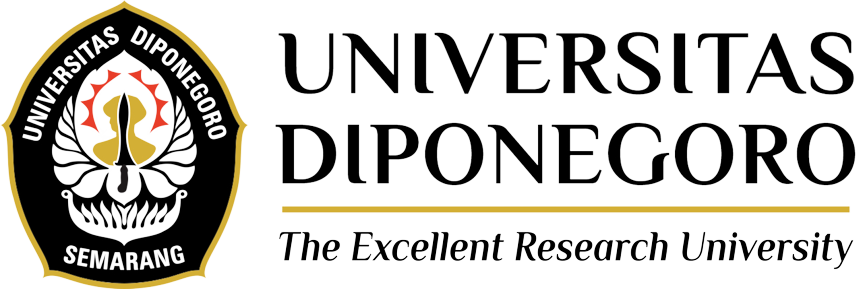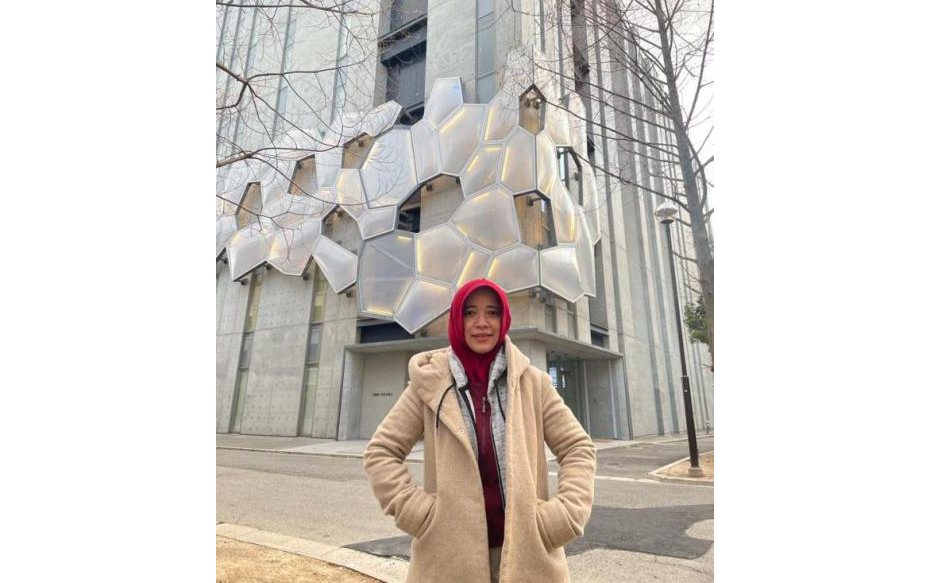A paper from a lecturer of Department of Environmental Engineering, Faculty of Engineering, Undip, Titik Istirokhatun, S.T., M.Sc., was selected to be one of the papers that have a major impact on the development of membrane science published by the Journal of Membrane Science (JMS) (https:// doi.org/10.1016/j.memsci.2021.120196), the editors’ choice as one of the most impactful papers. Currently JMS is in the position of impact factor (IF) 8,742 and Scientific Journal Ranking (SJR) 1.93.
Titik stated that this paper discusses nanofiltration membranes which are commonly used for water and wastewater treatment. The nanofiltration membrane in this study was fabricated using the interfacial polymerization method by including silver nanoparticles that have been synthesized into silver compounds first. The resulting nanofiltration membrane has a much higher permeability, high salt rejection, and is resistant to fouling caused by protein, alginate, humic acid and bacteria, which resulted in very promising results in the current development of nanofiltration technology.
“So this research is about nanofiltration membranes used for water and wastewater treatment. Usually Nanofiltration (NF) is made by means of interfacial polymerization (IP) to form a polyamide layer. This interfacial polymerization process has become a method used by industry to make commercial membranes. However, this polyamide layer has a weakness in the form of low water permeability and is very susceptible to fouling both caused by organic foulants and biofoulants such as bacteria, which of course will shorten the life of the membrane. In this study, a nanofiltration membrane has been successfully made by including silver nanoparticles by synthesizing the silver compound first. As a result, the nanofiltration membrane has a much higher water permeability, is resistant to fouling caused by proteins, alginates, humic acids and also bacteria,” she said.
This success story slightly diverted the longing for family for Titik considering that family could not accompany her in her further studies in Japan, and of course it became a matter of pride for the Department of Environmental Engineering, Faculty of Engineering and Undip considering a work to be published in a high-reputed journal is not easy.
Her study journey began with her experience of passing Undip scholarships. She stated that she was very happy and relieved because she could immediately start further doctoral studies when in 2018-2019 scholarships to abroad for lecturers from LPDP no longer existed, while the BUDI LN scholarship was only open once a year where if she wait for the scholarship, the existing LoA will be forfeited. She expressed her gratitude to Undip, who had provided the opportunity for her further studies.
“Undip’s policy to provide scholarships to lecturers is very useful, and I am very glad for getting this scholarship. I am very grateful to Undip and Environmental Engineering that really support us, the lecturers, for further studies,” said Titik.
She also advised and motivated students to be eager to seek knowledge. “If your family and loved ones support you, don’t waste their support and sacrifice, be excited to seek knowledge. Don’t be afraid to leave your comfort zone, study further because that way we will be able to achieve our goals, gain knowledge, establish networks, learn manners, and make friends with experts,” she concluded. (As)

